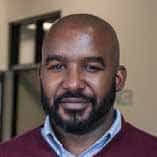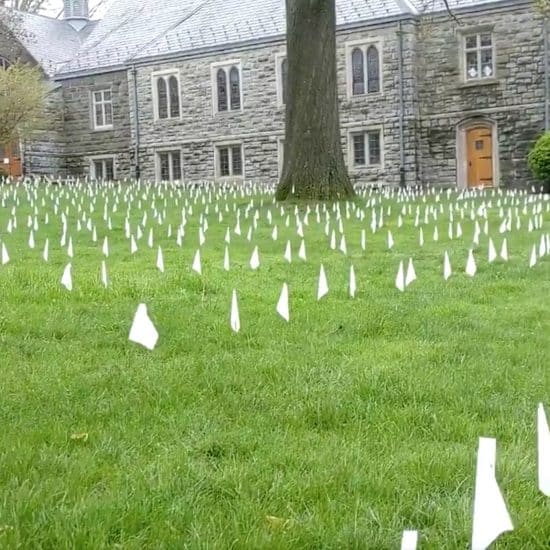Last month, I wrote about Luke 7:36-50 and the sinful woman who interrupted Jesus while he was visiting Simon’s home. During this incident, the woman used her hair, her tears and a bottle of expensive perfume to clean Jesus’s dusty feet. This act was simultaneously a humiliating and scandalous act that any righteous person could not overlook. Simon, the dinner host and most righteous person present, was appalled at both the woman for her actions and Jesus for letting her touch him.
 Terrell CarterJesus, aware of Simon’s thoughts, lets him have it, asking, “Who do you think appreciates it more when their sin is forgiven? Someone who has been forgiven a little or a lot?” Simon says, “The person that has been forgiven for a lot.”
Terrell CarterJesus, aware of Simon’s thoughts, lets him have it, asking, “Who do you think appreciates it more when their sin is forgiven? Someone who has been forgiven a little or a lot?” Simon says, “The person that has been forgiven for a lot.”
Jesus agrees with Simon and reminds him that he forgot to engage in the simplest graces typically exhibited by a dinner host: offering to wash a guest’s feet. Jesus said, “This woman not only cleaned my feet. She hasn’t stopped kissing them since she arrived. The true embarrassment isn’t in her actions but in the attitude that you have towards her and towards me.” The passage ends with Jesus pronouncing the unilateral forgiveness of the woman’s sins, whatever they may be.
In last month’s writing, I recognized the fact that, like Simon, I can be judgmental about people who I consider to be sinful or “other.” But, I also recognize myself in the sinful woman.
I have been an outsider among judgmental people. I know how it feels to walk into a room and for people to think they know who you are the moment they see you because of the neighborhood where you grew up or your family life circumstances.
I was raised by my paternal grandparents. They had my father when they were 16 years old. Neither of them went to high school. In turn, my parents became pregnant with me and my twin brother when they were 17 years old and neither of them graduated high school.
We grew up in a predominantly African American neighborhood called the Ville in North St. Louis City. The Bible asks the question, “What good can come from Nazareth?” The question could be reworded to ask, “What good can come from the Ville?” The Ville is a neighborhood that some people look down on as being unacceptable. It’s one of those neighborhoods that my white friends ask if it is safe for them to go there?
When a white person hears about my early life circumstances, they say, “You turned out well despite your beginning.” Although it may be unintentional, that response reveals the same kind of attitude that Simon held towards the sinful woman.
John Martens says, “It is we who define ourselves as ‘worthy’ by creating distinctions between those whom we consider ‘real’ sinners and those whom we judge basically ‘righteous,’ which generally includes me and those like me.”
The sinner, the other, the person that is unworthy to be in my presence is the one who is different from me, whether their difference is intentional or whether that difference is a byproduct of life. I appreciate the rest of Martens’s quote: “But no matter how worthy we consider ourselves, (or how unworthy we consider others) God sees all of us as we are…”
I am thankful and confident that my personal value is not eternally determined by other people’s perceptions of me, the family I was born into, where I grew up or the challenges I have experienced and overcome in my life. My value is based on something greater than that.
My value is based on God’s love for me and was exhibited through Jesus’s sacrificial life, death and resurrection. My value comes from God’s affirmation of me as a child of the King. And the same thing applies to each of us. The summation of our life, our importance, our self-worth and our value as a human being is greater than what someone else tries to label us as. Like the sinful woman, we are forgiven of any past faults and sent out to live a life of freedom.
Terrell Carter is assistant professor and director of contextualized learning at Central Baptist Theological Seminary in Shawnee, Kan., and pastor of Webster Groves Baptist Church in Webster Groves, Mo.
See also:

